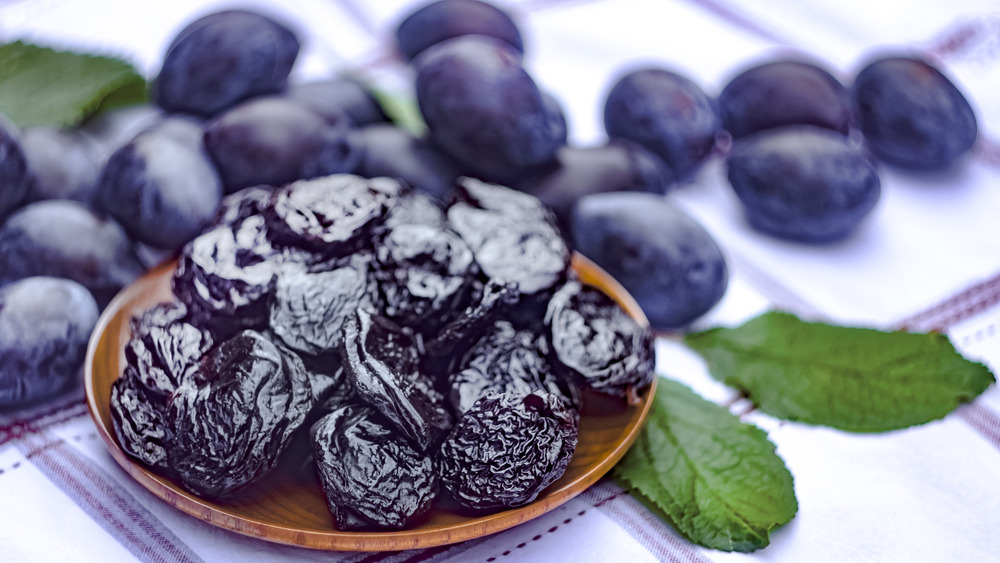You Should Be Eating More Prunes. Here's Why
Prunes get a pretty bad rap in the realm of dried fruits. After all, they're practically synonymous with grandparents and their fixation on fiber content. However, if you're willing to give them a try, dried plums actually have a lot more than just fiber to offer.
According to Healthline, adding prunes to your diet can help with a number of health concerns, from digestive issues and overactive bladder to building stronger bones, muscles, and "mental acuity," thanks to their high boron content. In fact, just one serving (about 100 grams) of prunes per day fulfills your daily boron requirement and may help prevent osteoporosis later in life (via PubMed).
But that's not all prunes can do for you. Adding prunes to your diet can also reduce blood pressure, help slow the development of atherosclerosis, and might even help prevent emphysema and colon cancer, though more studies are needed to know for sure.
Even more reasons to add prunes to your diet
Multivitamins are great and all, but if you can, it's always best to get as many nutrients as possible from your diet. That's one reason prunes are such a healthy choice; they're a good source of vitamins A, C, K, and B6, as well as iron, manganese, and copper (via WebMD).
Of course, as with any good thing, eating too many prunes can cause some negative side effects. For instance, prunes are an excellent choice to relieve constipation because they contain sorbitol, a sugar alcohol that acts as a natural laxative, and they can also help you to maintain a healthy weight by reducing appetite thanks to their high fiber content (via Healthline). However, too many prunes can cause diarrhea and even weight gain, just like an excess of any dried fruit.
So what constitutes too many prunes? According to Dr. Hooshmand, who has been studying the effects of prunes on bone health for 15 years, 50 grams (or 5-6 prunes) per day is a good ballpark, though you might want to start with one or two and work your way up slowly to avoid any unwanted side effects (via Good Housekeeping).

